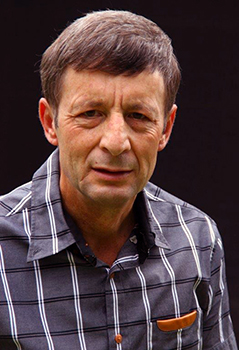Latest News Archive
Please select Category, Year, and then Month to display items
10 March 2022
|
Story Anthony Mthembu
|
Photo Unsplash
 The No Student Hungry team gearing up to start distributing food parcels to the selected students.
The No Student Hungry team gearing up to start distributing food parcels to the selected students.
The UFS is one of the many institutions of higher learning where food insecurity is an active issue. However, the
No Student Hungry Programme is one of the initiatives launched at the university to assist in fighting food insecurity at the institution.
The purpose of the programme
Since its inception in 2011, the initiative has assisted many students in acquiring a healthy meal. Additionally, the Food Environment Office also hands out food packages, so that students can continue to achieve academically. “We are trying to develop a healthy environment for students and make it easier for them to have a nice and healthy meal,” stated Annelize Visagie, who heads the Food Environment Office at the UFS. The Food Environment programme is spread out on all three campuses, each with its own facilitators. Furthermore, the programme mainly caters for students who are not funded by the National Student Financial Aid Scheme (NSFAS) but who are excelling academically. The abovementioned students apply for assistance online, and a list is then drawn up of students who receive assistance for the year.
Alternative solutions to keep the initiative running
On the Bloemfontein Campus, the No Student Hungry Programme will be catering for 200 students in the 2022 academic year, assisting them with a daily nutritious meal. Additional food parcels are also handed out to provide further assistance. “We give food parcels to the students on the list every Tuesday and Thursday at the Thakaneng Bridge,” Visagie highlighted. However, she argues that catering for the student population through this programme can be a challenge, as the demand for assistance is growing rapidly and the ability to assist is limited. The programme relies on partnerships and sponsors to assist the student body. In fact, the coordinators of the programme currently have a memorandum of understanding with Tiger Brands according to which they deliver around 100 food parcels for distribution.
In addition, the coordinators have put in place alternative measures to ensure that they can provide more food to students. “The
Kovsie Act Office, in partnership with the
Department of Sustainable Food Systems and Development, has started a food garden where healthy and nutritious produce are grown, in order to add value to the distribution,” she indicated. Although the programme can only assist to a point, students who are in desperate need of assistance are never turned away. In fact, the
Social Support Unit at Thakaneng Bridge usually assists students with food vouchers for a maximum of four days.
A commitment to teaching healthy eating habits
The programme is not only committed to curbing food insecurity, but also to ensuring that students have a healthy and balanced diet. As such, a booklet is being issued by the
Department of Nutrition and Dietetics in collaboration with the Department of Sustainable Food Systems and Development, which contains ways in which students can make a healthy meal using some of the ingredients offered in the food parcels.
“We want to teach students how to eat healthy in the cheapest way, because they don’t have a lot of money to buy expensive food products,” Visagie argued.
Prof Luyt says young researchers should not allow circumstances to determine their future
2016-02-01

Prof Riaan Luyt, an NRF B-rated researcher
Photo: Supplied |
Young researchers, who spend their life at a disadvantaged and rural campus like the University of the Free State’s Qwaqwa Campus, should not be deterred from achieving their dreams.
This is the view of Prof Riaan Luyt, former Assistant Dean in the Faculty of Natural and Agricultural Sciences, who achieved his B-rating by the National Research Foundation (NRF) late in 2015. This was by far the highest-ever rating on the Qwaqwa Campus.
“When I moved to the Qwaqwa Campus many years ago, having had the opportunity to do a post-doctoral fellowship in Polymer Science at the Leeds University in the United Kingdom, I was determined to get the Department of Chemistry off the ground, and to embark on serious research,” said Prof Luyt, who is now the Affiliated Professor in the Department of Chemistry and Research Associate Professor at the Centre for Advanced Materials, based at Qatar University.
“It was through sheer determination that I managed to obtain enough funds to equip a decent research laboratory. There were many obstacles over the years, but I managed to attract more and more postgraduate students and published more,” he said.
At first, Prof Luyt was not successful with his NRF-rating applications.
“My first couple of attempts to get rated produced no success. I was then awarded a C3-rating, which was later followed by C2 and then C1,” he added. “Getting a B-rating is the highlight of my research career. It shows that it can be done. Young researchers should not allow their past or present circumstances, or their work environment to stand on their way,” said Prof Luyt, who has supervised 38 master’s and doctoral students as well as 11 postdoctoral fellows. He has also published 185 papers in international and accredited journals.
Although abroad, Prof Luyt will continue to supervise eight postgraduate students at the Qwaqwa Campus.